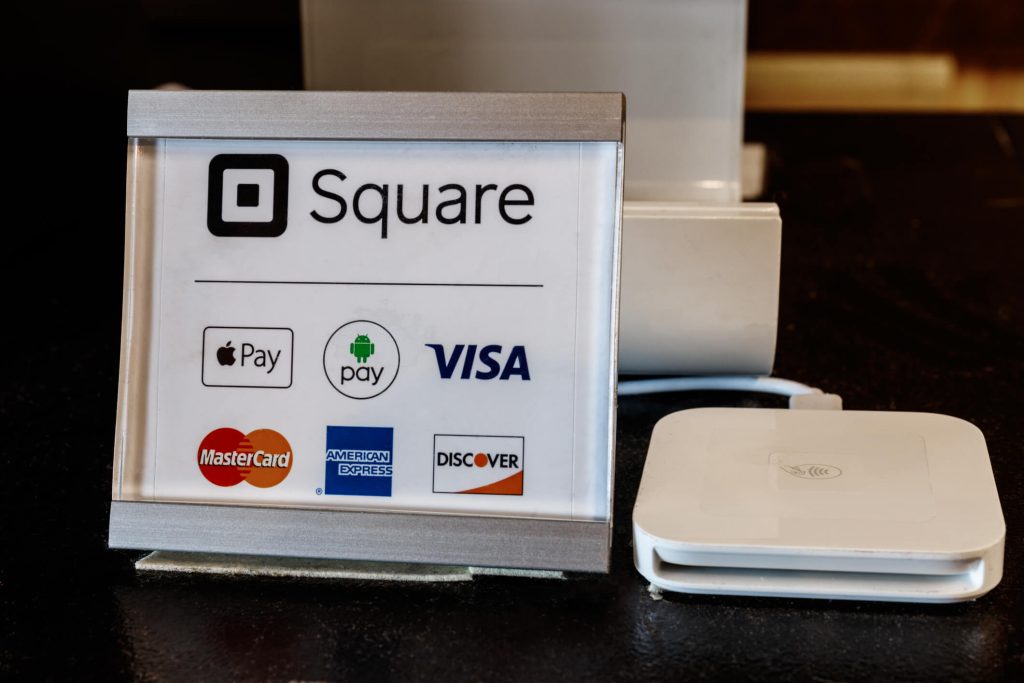
By alphacardprocess April 24, 2024
In today’s digital age, payment processing solutions have become an integral part of service industries. Whether it’s a healthcare provider, a consulting firm, or a beauty salon, businesses in the service sector rely heavily on efficient and secure payment processing systems to streamline their operations and enhance customer satisfaction. This comprehensive guide aims to explore the importance of payment processing solutions for service industries, the evolution of payment processing in this sector, key features to look for in such solutions, popular options available, best practices for implementation, challenges faced, security concerns, and the future of payment processing solutions.
Understanding the Importance of Payment Processing Solutions for Service Industries
Payment processing solutions play a crucial role in service industries by enabling businesses to accept various forms of payment, including credit cards, debit cards, and mobile payments. These solutions provide convenience and flexibility to customers, allowing them to choose their preferred payment method. Moreover, they streamline the payment process, reducing the time and effort required for manual transactions.
For service industries, efficient payment processing solutions are essential for maintaining a competitive edge. In today’s fast-paced world, customers expect seamless and hassle-free payment experiences. By offering multiple payment options and ensuring quick and secure transactions, service businesses can enhance customer satisfaction and loyalty.
The Evolution of Payment Processing in Service Industries
The payment processing landscape has evolved significantly over the years, driven by advancements in technology and changing consumer preferences. In the past, service industries primarily relied on cash or checks for payments. However, with the rise of electronic payment methods, businesses had to adapt to meet the changing demands of their customers.
The introduction of credit and debit cards revolutionized payment processing in service industries. Businesses started accepting card payments through point-of-sale (POS) terminals, which allowed for faster and more secure transactions. As technology continued to advance, online payment gateways emerged, enabling businesses to accept payments through their websites.
Today, service industries are embracing mobile payment solutions, such as digital wallets and contactless payments. These solutions leverage smartphones and near-field communication (NFC) technology to facilitate quick and convenient transactions. The evolution of payment processing in service industries has been driven by the need for speed, security, and convenience.
Key Features to Look for in Payment Processing Solutions for Service Industries
When choosing a payment processing solution for a service industry, several key features should be considered:
- Multiple Payment Options: The solution should support a wide range of payment methods, including credit cards, debit cards, mobile payments, and online wallets, to cater to diverse customer preferences.
- Integration Capabilities: It should seamlessly integrate with existing systems, such as accounting software and customer relationship management (CRM) tools, to streamline operations and avoid manual data entry.
- Security Measures: The solution should prioritize data security and compliance with industry standards, such as Payment Card Industry Data Security Standard (PCI DSS), to protect sensitive customer information.
- Reporting and Analytics: Robust reporting and analytics capabilities enable businesses to gain insights into their payment transactions, track sales performance, and make data-driven decisions.
- Recurring Billing: For service industries that offer subscription-based services or recurring payments, the solution should support automated recurring billing to simplify the process and reduce administrative overhead.
- Customer Support: Reliable customer support is crucial to address any issues or concerns promptly. Look for a payment processing solution provider that offers 24/7 support and has a reputation for excellent customer service.
- Scalability: As service businesses grow, their payment processing needs may change. Choose a solution that can scale with the business and accommodate increasing transaction volumes without compromising performance.
- Competitive Pricing: Consider the pricing structure of the payment processing solution, including transaction fees, monthly fees, and any additional charges. Compare different providers to find the most cost-effective option for the business.
- User-Friendly Interface: The solution should have an intuitive and user-friendly interface, making it easy for staff to process payments and for customers to complete transactions.
- Customization Options: Some payment processing solutions offer customization options, allowing businesses to tailor the payment experience to their brand and customer preferences.
By considering these key features, service industries can select a payment processing solution that aligns with their specific needs and enhances their operations.
Popular Payment Processing Solutions for Service Industries
There are several popular payment processing solutions available for service industries. Let’s explore some of the leading options:
Square

Square is a widely used payment processing solution that offers a range of hardware and software options. It provides businesses with a complete ecosystem for accepting payments, managing inventory, and analyzing sales data.
- Pros: Square offers a comprehensive suite of tools for managing payments, inventory, and customer data. It has a user-friendly interface and transparent pricing structure.
- Cons: Square’s transaction fees may be higher compared to other solutions, especially for businesses with high transaction volumes.
PayPal

PayPal is a well-known online payment gateway that allows businesses to accept payments through their websites. It offers a user-friendly interface, robust security measures, and integration with various e-commerce platforms.
- Pros: PayPal is widely recognized and trusted by customers. It offers seamless integration with various e-commerce platforms and has robust security measures in place.
- Cons: PayPal’s customer support may not always meet the expectations of businesses, and it may have limitations in terms of customization options.
Stripe

Stripe is a developer-friendly payment processing solution that enables businesses to accept payments online and through mobile apps. It offers a suite of APIs and tools for customization and integration with other systems.
- Pros: Stripe provides developers with extensive customization options and a range of APIs for integration. It offers advanced features like subscription billing and support for multiple payment methods.
- Cons: Stripe’s pricing structure can be complex, and businesses may need technical expertise to fully leverage its capabilities.
Authorize.Net
Authorize.Net is a payment gateway that provides businesses with the ability to accept credit card payments online. It offers features such as recurring billing, fraud detection, and customer information management.
- Pros: Authorize.Net is a reliable and established payment gateway with a wide range of features, including fraud detection and recurring billing. It integrates well with various e-commerce platforms.
- Cons: Authorize.Net’s user interface may not be as intuitive as some other solutions, and its pricing structure may not be the most competitive for businesses with low transaction volumes.
Braintree
Braintree, owned by PayPal, is a payment processing solution that focuses on providing seamless and secure mobile payment experiences. It offers features like one-touch payments and support for various digital wallets.
- Pros: Braintree specializes in mobile payments and offers a seamless and secure payment experience. It supports various digital wallets and has a user-friendly interface.
- Cons: Braintree’s pricing structure may not be the most cost-effective for businesses with high transaction volumes, and it may have limitations in terms of reporting and analytics capabilities.
Adyen
Adyen is a global payment platform that enables businesses to accept payments in multiple currencies and through various payment methods. It offers advanced fraud detection and risk management capabilities.
- Pros: Adyen is a global payment platform that supports multiple currencies and payment methods. It offers advanced fraud detection and risk management features.
- Cons: Adyen’s pricing structure may be complex, and businesses may need technical expertise to fully utilize its capabilities.
These are just a few examples of popular payment processing solutions for service industries. Each solution has its own unique features and pricing structures, so it’s important for businesses to evaluate their specific requirements and choose the one that best fits their needs.
Implementing Payment Processing Solutions in Service Industries: Best Practices
Implementing payment processing solutions in service industries requires careful planning and execution. Here are some best practices to consider:
- Assess Business Needs: Before selecting a payment processing solution, assess the specific needs of the business. Consider factors such as transaction volume, types of payment methods required, integration requirements, and scalability.
- Research and Compare: Conduct thorough research and compare different payment processing solutions. Consider factors such as pricing, features, customer reviews, and reputation. Request demos or trials to get a hands-on experience with the solutions.
- Plan for Integration: If the business already has existing systems in place, ensure that the payment processing solution can seamlessly integrate with them. This will help avoid manual data entry and streamline operations.
- Train Staff: Provide comprehensive training to staff members who will be using the payment processing solution. Ensure they understand how to process payments, handle refunds, and troubleshoot any issues that may arise.
- Test and Optimize: Before fully implementing the payment processing solution, conduct thorough testing to ensure it functions as expected. Optimize the settings and configurations to align with the business’s specific requirements.
- Communicate with Customers: Inform customers about the new payment options available and any changes in the payment process. Provide clear instructions and support to ensure a smooth transition.
- Monitor and Analyze: Regularly monitor payment transactions and analyze the data to gain insights into sales performance, customer behavior, and trends. Use this information to make data-driven decisions and optimize the payment process.
- Stay Updated: Keep up with the latest advancements in payment processing technology and industry regulations. Regularly review the chosen payment processing solution to ensure it continues to meet the business’s needs.
By following these best practices, service industries can successfully implement payment processing solutions and maximize their benefits.
Overcoming Challenges in Payment Processing for Service Industries
Implementing payment processing solutions in service industries can come with its own set of challenges. Here are some common challenges and strategies to overcome them:
- Integration Complexity: Integrating payment processing solutions with existing systems can be complex. To overcome this challenge, choose a solution that offers seamless integration options and consider seeking assistance from experts if needed.
- Technical Support: Inadequate technical support can hinder the smooth operation of payment processing systems. Choose a solution provider that offers reliable and responsive customer support, including 24/7 assistance.
- Security Concerns: Service industries handle sensitive customer information, making data security a top priority. To address security concerns, choose a payment processing solution that complies with industry standards and invests in robust security measures.
- Fraud Prevention: Service industries are vulnerable to fraudulent transactions. Implement fraud detection and prevention measures, such as address verification systems and real-time transaction monitoring, to minimize the risk of fraud.
- Chargebacks and Disputes: Chargebacks and payment disputes can be time-consuming and costly for service industries. Establish clear refund and dispute resolution policies, and ensure staff members are trained to handle such situations effectively.
- Changing Regulations: Payment processing regulations can change over time, requiring businesses to stay updated and compliant. Regularly review industry regulations and work with legal experts to ensure compliance.
By proactively addressing these challenges, service industries can minimize disruptions and maximize the benefits of payment processing solutions.
Addressing Security Concerns in Payment Processing for Service Industries
Security is a critical aspect of payment processing for service industries. Here are some measures to address security concerns:
- PCI DSS Compliance: Payment Card Industry Data Security Standard (PCI DSS) compliance is essential for businesses that handle cardholder data. Choose a payment processing solution that is PCI DSS compliant and regularly undergoes security audits.
- Encryption and Tokenization: Implement encryption and tokenization techniques to protect sensitive customer information during transmission and storage. This ensures that even if data is intercepted, it remains unreadable and unusable.
- Two-Factor Authentication: Enable two-factor authentication for staff members accessing the payment processing system. This adds an extra layer of security by requiring a second form of verification, such as a unique code sent to a mobile device.
- Fraud Detection and Prevention: Utilize fraud detection and prevention tools provided by the payment processing solution. These tools analyze transaction patterns and identify suspicious activities, helping to prevent fraudulent transactions.
- Regular Security Updates: Keep the payment processing system up to date with the latest security patches and updates. Regularly review and update security configurations to address emerging threats.
- Employee Training: Train staff members on security best practices, such as recognizing phishing attempts, using strong passwords, and following secure procedures for handling customer data.
- Third-Party Security Audits: Consider conducting regular security audits by third-party experts to identify vulnerabilities and ensure compliance with industry standards.
By implementing these security measures, service industries can instill confidence in their customers and protect sensitive payment information.
The Future of Payment Processing Solutions for Service Industries
The future of payment processing solutions for service industries is expected to be shaped by technological advancements and changing consumer behaviors. Here are some trends to watch out for:
- Contactless Payments: Contactless payments, such as mobile wallets and NFC-enabled cards, are gaining popularity. Service industries will need to adapt to this trend by offering contactless payment options to meet customer expectations.
- Biometric Authentication: Biometric authentication, such as fingerprint or facial recognition, is becoming more prevalent. This technology enhances security and convenience, and service industries may adopt it as an additional layer of authentication for payment processing.
- Artificial Intelligence (AI): AI-powered tools can analyze payment data and customer behavior to provide personalized recommendations and detect fraud. Service industries may leverage AI to enhance the payment experience and improve security.
- Blockchain Technology: Blockchain technology offers secure and transparent transactions, making it an attractive option for payment processing. Service industries may explore blockchain-based payment solutions to enhance security and reduce transaction costs.
- Voice-Activated Payments: With the rise of virtual assistants like Amazon’s Alexa and Apple’s Siri, voice-activated payments are becoming more prevalent. Service industries may integrate voice-activated payment options to provide a seamless and hands-free payment experience.
- Internet of Things (IoT) Payments: As IoT devices become more prevalent, service industries may explore IoT-enabled payment solutions. For example, smart devices in healthcare settings could facilitate automated payments for services rendered.
FAQs
What are the main types of payment processing solutions available for service industries?
Service industries can choose from a variety of payment processing solutions including point-of-sale (POS) systems, online payment gateways, mobile payment solutions, and digital wallets. Each type caters to different operational needs and customer preferences.
How can businesses ensure the security of their payment processing systems?
Businesses should prioritize solutions that are PCI DSS compliant, utilize encryption and tokenization to protect data, and implement fraud detection systems. Regular security audits and staff training on data security are also crucial.
What should businesses consider when choosing a payment processing solution?
Key considerations include the types of payment methods supported, integration capabilities with existing systems, security features, ease of use, scalability, customer support, and overall cost-effectiveness.
How can service industries handle chargebacks and disputes effectively?
Establishing clear policies for refunds and disputes, training staff on handling such situations, and using payment processing solutions that offer detailed transaction tracking and support for resolving disputes can help manage chargebacks effectively.
Are there specific payment processing challenges unique to service industries?
Yes, service industries often face challenges related to integrating diverse payment systems, managing high transaction volumes, ensuring high security for sensitive customer data, and adapting to regulatory changes.
Conclusion
Efficient payment processing solutions are essential for service industries to streamline operations, enhance customer satisfaction, and stay competitive in today’s digital landscape. For service industries, selecting the right payment processing solution is crucial for enhancing operational efficiency, securing customer transactions, and improving overall customer satisfaction. By staying informed about the latest technologies and trends, such as contactless payments and AI enhancements, service businesses can better prepare for the future and continue to thrive in a competitive marketplace.
